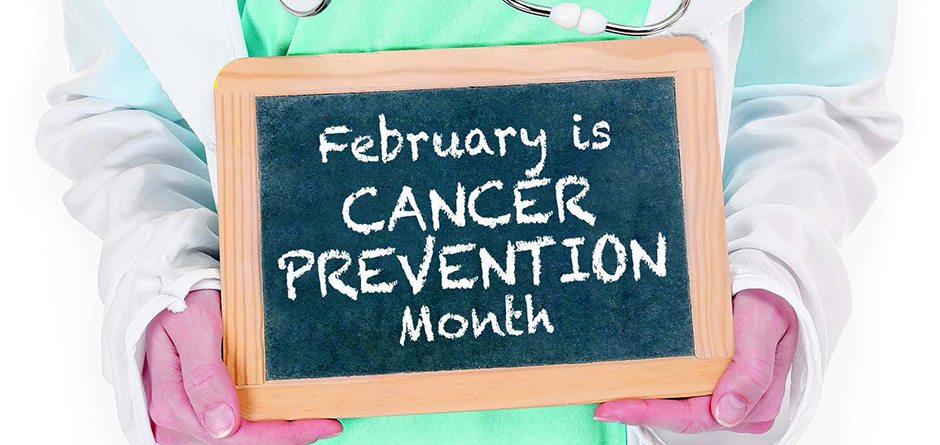
[This piece was written by Anne Lawton, RN, community liaison, St. Peter’s Cancer Care Center.]
We are all aware of the different cancer awareness months for various cancers, but how many are aware that all of February is National Cancer Prevention Month? An estimated 110,000 people in New York state will be diagnosed with cancer in 2017 – make this February the one where you learn how to reduce your risk.
The number one cause of preventable cancer diagnosis and deaths is tobacco use. If you don’t use tobacco, don’t start. If you are a tobacco user, it’s never too late to stop and help is a phone call away. Contact the NYS Quitline at 1-NY-QUITS (1-697-8487) for assistance.
Obesity is the second most common preventable cause of cancer. Choose healthy foods such as fruits, vegetables, whole grains, nuts, healthy fats and lean proteins. Avoid high sugar and processed food items. Most importantly, try to maintain a healthy weight throughout your life. Regular exercise will not only make you feel better, but will help maintain your weight.
The third preventable cause is alcohol abuse. Drink alcohol in moderation, as two or more alcoholic drinks a day increase your cancer risk.
Screening guidelines for cancer can vary based on your individualized risk factors and should be reviewed with your primary care physician yearly. That discussion about your personal and genetic risk factors are vital toward guiding you to the most appropriate recommendations.
For the average person, recommended screening guidelines include:
- Yearly mammography starting at age forty and continuing annually.
- Prostate screenings through a PSA blood test or digital rectal exam should be discussed with your physician, and start at age 50.
- A complete skin exam should be completed yearly by your primary care physician or by a dermatologist at any age.
- A colonoscopy is a screening tool for colon cancer that is recommended for everyone starting at age 50. A FIT test is also available, but it will not pick up the presence of polyps. Most colon cancers start as a polyp and are removed during a routine colonoscopy.
- A pap smear is a screening tool where cells are collected from the cervix to assess for abnormalities. For the average woman, this should start at age 21 and be repeated every three years.
- A low-dose CT scan is recommended yearly starting at age 55 for past and present smokers with a 30 year/pack history. If you smoked two packs a day for 15 years or a pack a day for 30, you should get screened.
- Oral cancer screening is part of your general dental cleaning, recommended twice a year, and you should follow guidelines from your dentist.
Remember, early detection of cancer increases the survival rate and the possibility of a cure. Make prevention and screening a priority in your life!
If you have questions, please call St. Peter’s Hospital Cancer Line at (518) 525-1827.




